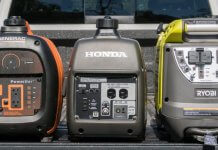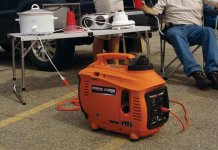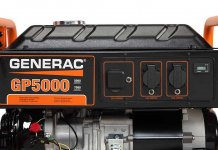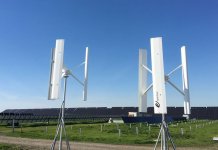Well, you may have heard of both generators and inverter generators, right? And, you may be thinking that this article is about them. Well, it is not! Did you know that inverters are something else? We are not talking about inverter generators, we are talking about only inverters. First, let us briefly tell you why would you even need the inverters and generators</strong>? And, then a lot of details are coming in the next sections. Just keep on reading. </p>
In simple terms, both inverters and generators provide you with power. Now, what did we mean by power? We meant that they will provide you with electricity</strong>. This electricity can be extracted from them at any time and anywhere in the world. When you will not have the grid’s electricity, they will be your perfect alternative sources of constant electricity. </p>
Just imagine for a second, what will happen if the electricity suddenly goes away</strong>? What if you were in the middle of submitting your online assignment? Or you were straightening your hair to go to a party? Or maybe you were watching your favorite tv show on the TV? Or what if you were ironing your clothes? First of all, you would pray for the light to come back, and then if it doesn’t, you can well imagine what will happen</strong>. </p>
These are just a few examples to let you realize how important it is to have a backup source of power. If the power shutdown is for long hours: your food stacked in the refrigerator can go rotten, your cell phone, laptop or tablet batteries will eventually go down</strong>, communication links will get disrupted, and so on. The electrical security systems will also be no longer available and your property will be more prone to outside attacks. Robbers and intruders are often more allured by darkness. </p>
Sudden power breakdowns also cause great losses to industrialists and business owners</strong>. Sometimes, machines costing millions of dollars can get damaged because of sudden electricity cut down. So, it is always best to have an alternative source of power. Both inverters and generators will provide power to fulfill your need for home backup power, recreational activities, and office work [1]. Presently, you may be thinking about how do they exactly operate and which one of them is better. We have explained everything in the rest of the article.</p>
It is worth mentioning here that it is also very crucial that you buy the right size of the inverters</strong> or the generators</strong>. This is all for your own benefit. If you buy their large size, there is a chance that your electrical appliances will get damaged and may no longer work. And, you are simply wasting money on the extra power that you don’t really need. On the other hand, if you buy their small size, there is a chance that you may not be able to turn on all of your electrical appliances. </p>
Table of Content</p></p></figure>
Inverter vs Generator. Different power sources for different conditions in 2026
</strong></strong></p></strong></p></strong></p></figure></strong></strong></p></strong></p></strong></p></body></html>







